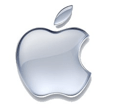iPhone-maker Apple’s share of the smartphone market will peak this year — at just over a fifth (22 per cent) of the global market, says analyst ABI Research. Apple’s share will then remain flat through to 2018 as mobile maker Samsung continues to dominate. The prediction comes from ABI’s latest Mobile Handset Markets report.
“Barring an unlikely collapse in Samsung’s business, even Apple will be chasing Samsung’s technology, software, and device leadership in 2013 through the foreseeable future,” commented senior analyst Michael Morgan in a statement.
ABI notes that Samsung has grown its share of the global smartphone market from eight per cent to more than 30 per cent in 2012. The Korean mobile maker has leaned very heavily on Google’s Android OS thus far — Android currently accounts for 90 per cent of its smartphone shipments — but the analyst points out that the future smartphone OS landscape will likely be “heavily influenced” by how much Samsung decides to focus on other elements in its OS portfolio: namely its homegrown OS Bada; its open source collaboration with Intel Tizen; and Microsoft’s Windows Phone.
Samsung has recently been showing signs of wanting to diversify its OS distribution to reduce its reliance on Android. Earlier this month it confirmed it will be launching Tizen-based devices this year.
Elsewhere in the report, ABI notes that smartphone shipments will account for half of all mobile handset shipments by 2014 — going on to become the largest handset segment in the world. By 2018, the analyst predicts that 2.4 billion smartphone handset shipments will account for 69 per cent of all handset shipments. It says growth in smartphone shipment penetration will be driven by the “rapidly growing low-cost smartphone segment” — aka low-cost Androids — and forecasts that smartphones with wholesale ASPs under $250 will account for 62 per cent of smartphone shipments by 2018.
Meanwhile LTE handsets will account for just over a third (35 per cent) of all handset shipments and half of smartphone shipments in 2018 — making LTE the fastest-growing WWAN technology in history, according to ABI.
That’s not necessarily a sign of user adoption of LTE though; ABI observes that just because a phone has an LTE chip in it, does not mean its owner is making use of LTE. “With the successful launch of the iPhone 5 and competing LTE handsets from other leading OEMs, LTE handsets will be found in the hands of many consumers who do not even have access to LTE networks,” says senior practice director Jeff Orr in a statement. “Apple is demonstrating to the market that LTE is not the only reason to buy a premium handset.”
